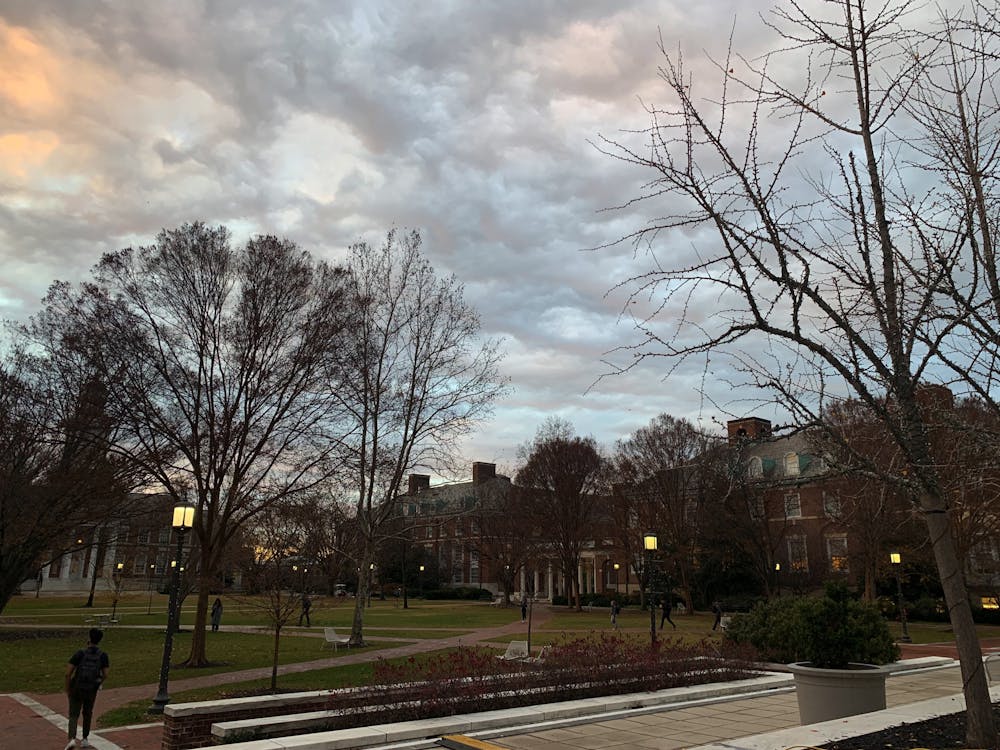The University’s IDEAL chapter hosted a discussion titled “The Johns Hopkins Police Department: It’s Approval and Consequences” on Nov 30. The seminar provided students with the opportunity to address their concerns about the Johns Hopkins Police Department (JHPD) and public safety with fellow students.
IDEAL, which stands for Inform, Discuss, Enlighten, Acknowledge and Learn, is a nonpartisan nonprofit that seeks to change the way students think about politics and interact with each other. The event began with junior Jake Szeszko establishing the discussion’s main goals.
“The goal of this discussion is to work together towards a consensus,” he said. “We’re not trying to decide whether JHPD is necessarily right or wrong. We’re just trying to figure out how it can be improved in the first place, how it’s going to be implemented and what might result because of that.”
Szeszko outlined a few common justifications of the JHPD prior to opening the discussion. These included the claim that the JHPD will improve the University’s ability to respond to the community’s growing public safety needs, that the University’s approach to policing will be evidence-based, community-driven and innovative and that the total number of JHPD officers will not exceed 100.
Sophomore Iris Gupta described the specifics of what the JHPD’s implementation will look like. She noted that the JHPD will have jurisdiction over places owned, leased or operated by the University and that in order to expand the patrol boundaries the University would require a memorandum of understanding between the Baltimore Police Department (BPD) and majority community support.
After the presentation of this information, Szeszko opened the discussion by asking attendees what they thought about the virtual modality of the last two town halls about the JHPD. The last two town halls were moved to a hybrid and online format following a die-in protest at the first town hall.
Junior Dominick Solís responded that a virtual format was not ideal.
“The die-in, in a sense, prevented community members from [saying] what they wanted to say,” he said. “People that didn’t normally have access to the internet and couldn’t watch it from home that went [to the town hall], i.e. people who are not as privileged as most folks, they weren’t able to participate fully.”
The discussion then turned to questions about how the JHPD could be implemented in a way that would best fit the needs of the community. Solís emphasized that in light of recent crimes near campus, he values safety as a top priority.
“What I value the most right now is safety,” he said. “I know that Hopkins is a very safe part of Baltimore... [but] something that got me really worried about my safety was the string of robberies in mid-day.”
Solís reflected on the recent actions of a new student organization, Students for JHPD, who have been posting printed email broadcasts reporting crimes that have occurred around the Homewood Campus. Solís added that while he’s not sure if the JHPD will actually help reduce crime, it is notable that it seems the student population's concerns about personal safety have increased.
Toward the end of the discussion, Gupta raised concerns about the JHPD’s training with regard to mental health. She cited a University broadcast sent to the student body on Nov. 15, which detailed the actions of an off-duty BPD officer working for Hopkins Public Safety.
The email claimed that a non-affiliate was making threatening statements to security personnel and attempting to gain access to the McCoy and Wolman residence halls. The off-duty BPD officer responding to the situation struck the individual with his hand during the encounter.
Gupta stressed that JHPD officers should have proper mental health training to avoid such situations.
“Something that would be really good for JHPD is maybe training them to have some sort of contact with mental health professionals or giving them access to social resources,” she said.
Solís provided a defense of the BPD officer’s actions.
“I personally think it’s a fair response,” he said. “If someone is trying to break into a Hopkins building where there’s [students]... it’s an issue that the force taken is... frowned upon.”
In an interview with The News-Letter, freshman Lourdes Figueroa stated that she came to the discussion following the Nov. 30 protests of the JHPD to hear perspectives from different students.
She emphasized that she continues to hold her position that the University should not implement the JHPD.
“There’s very little evidence that [the JHPD] is actually going to reduce the crime, and I stand by that,” she said.





